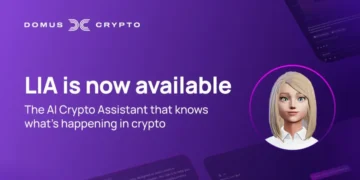In a recent blog post on Gates Notes, Bill Gates shared his insightful reflections on the pivotal moments of 2023, where science and technology took center stage. More intriguingly, he laid out his vision for the impact of Artificial Intelligence (AI) on humanity in 2024.
Predicted Adoption Timelines Across Continents
Gates forecasted that developed nations like the United States would take between 18 to 24 months to achieve “significant levels of AI usage among the general population.” In stark contrast, he suggested that African territories might require approximately three years for notable technology adoption.
The Transformative Power of AI
Gates envisions a near future where AI-powered tools will revolutionize how people connect with colleagues and loved ones. Beyond personal interactions, he anticipates these technologies creating new avenues to enhance education and healthcare accessibility.
Contrary to some pessimistic views, Gates holds an optimistic stance on AI’s influence on society. He firmly believes that AI will contribute to reducing global inequalities. Furthermore, Gates emphasized the role of AI as a pivotal tool in accelerating the pace of groundbreaking discoveries, particularly in the pharmaceutical realm.
AI in Pharmaceuticals: A Catalyst for Medical Advancements
Highlighting the potency of AI’s processing power, Gates underscored its pivotal role in pharmaceutical science. He anticipates that AI will significantly expedite drug discovery processes, particularly in developing more effective medications for cancer patients.
“The discovery of drugs requires the analysis of massive data sets, and AI tools can expedite this process significantly,” Gates stated. He also emphasized the Gates Foundation’s commitment to ensuring that AI addresses health issues disproportionately affecting the world’s poorest, such as HIV, tuberculosis, and malaria.
AI’s Ambitious Goals for Humanity
Bill Gates envisions AI as a key player in achieving several ambitious goals for humanity, including:
- Creating new medications to combat antibiotic resistance.
- Generating personalized virtual tutors for each student.
- Assisting in the treatment of high-risk pregnancies.
- Guiding individuals in assessing their risk of contracting HIV.
- Facilitating rapid access to medical information for all healthcare workers.
Anticipating the “Inflection Point” in 2024
Gates predicts a pivotal “inflection point” in 2024, likening the current state of AI to the emergence of the Internet in the early ’80s and its rapid expansion in the 2000s. Drawing a parallel, he notes that, initially, not many were familiar with the technology, but over time, it became ubiquitous in daily life.
AI’s Life-Saving Potential with Limited Resources
From the vantage point of the Gates Foundation, Bill Gates has closely observed AI’s impact on healthcare projects in resource-limited countries. AI has played a crucial role in combatting antibiotic-resistant diseases, offering suggestions on optimal drugs, dosages, and durations. It has also improved early diagnosis in high-risk pregnancies and addressed diseases like HIV, where social taboos can be overcome with the assistance of chatbots.
“We can learn a lot from global health about making AI more equitable. The main lesson is that the product must adapt to the people who will use it,” Gates noted in his letter.
AI Shaping the Future Generations
Gates expresses optimism about AI’s role in educational projects providing tools to students in resource-poor countries, citing examples like Khanmigo developed by Khan Academy and MATHia. He believes AI can ensure every child has an equal opportunity to thrive, underscoring the importance of AI investments to make the world more equitable and swiftly deliver innovative technologies to those in need.
Reflecting on the Past and Aspiring for the Future
Bill Gates reflects on achievements over the last two decades, proudly noting the significant reduction in infant mortality before the age of five. This accomplishment is a key motivation behind the establishment of the Bill and Melinda Gates Foundation.
While acknowledging progress, Gates remains aware of substantial challenges ahead, including malnutrition, global warming, and the energy crisis. Asked about choosing one problem to solve, Gates consistently emphasizes malnutrition, calling it the “greatest health inequity in the world.”
See also: GoCharlie AI Review 2024: Unleashing the Power of Creativity
Bridging the Technological Divide by 2024
In conclusion, Gates outlines his primary goal for 2024: leveraging innovation as a tool to narrow the gap between communities with full technology access and those without. As AI continues to evolve, Gates envisions a future where technology plays a pivotal role in fostering global equity and addressing pressing challenges.
FAQs
What are Bill Gates’ predictions for the impact of Artificial Intelligence (AI) in 2024?
Bill Gates anticipates that AI will have a significant influence on various aspects of society, including revolutionizing communication, enhancing education and healthcare accessibility, and contributing to the reduction of global inequalities.
How long does Bill Gates estimate it will take for developed countries to widely adopt AI?
According to Gates, developed nations like the United States may take between 18 to 24 months to achieve “significant levels of AI usage among the general population.”
What is the expected adoption timeline for AI in African territories?
Bill Gates suggests that African territories might require approximately three years for notable adoption of AI technologies.
What ambitious goals does Bill Gates believe AI can help humanity achieve?
Bill Gates envisions AI playing a key role in creating new medications, generating personalized virtual tutors for students, assisting in high-risk pregnancies, guiding individuals in assessing their risk of contracting HIV, and facilitating rapid access to medical information for healthcare workers.
How does Bill Gates compare the current state of AI to historical technological advancements?
Gates predicts an “inflection point” in 2024, likening the current state of AI to the emergence of the Internet in the early ’80s and its subsequent widespread adoption in the 2000s.
What is the role of AI in pharmaceutical advancements, according to Bill Gates?
Bill Gates highlights the potential of AI in expediting drug discovery processes, particularly in developing more effective medications for diseases like cancer. The Gates Foundation is committed to ensuring that AI addresses health issues affecting the world’s poorest.
How is AI making a difference in healthcare in resource-limited countries?
AI is playing a crucial role in resource-limited countries by combatting antibiotic-resistant diseases, improving early diagnosis in high-risk pregnancies, and addressing diseases like HIV where social taboos can be overcome with the assistance of chatbots.
What is Bill Gates’ primary goal for 2024 regarding technology and innovation?
Bill Gates aims to use innovation as a tool to reduce the gap between communities with full technology access and those without, fostering global equity and addressing pressing challenges.
What does Bill Gates consider the greatest health inequity in the world?
Bill Gates identifies malnutrition as the greatest health inequity in the world, affecting approximately one in four children.
Follow us on our social networks and keep up to date with everything that happens in the Metaverse!
Twitter Linkedin Facebook Telegram Instagram Google News Amazon Store
Recent Posts
- Coinstore hits 10 Million Users Milestone, Join Grand Celebration with $100,000 + Prize Pool
- Domus Crypto Launches LIA, an AI-Driven Assistant for Personalized Portfolio Management
- BitGo Launches Institutional Support for sBTC, Expanding Bitcoin DeFi Accessibility
- BTC price prediction today: It will rise to $138,500 by the end of 2025. SAVVY MINING teaches you how to earn a stable income online every day
- The Future of Work in the Metaverse: Virtual Jobs or Reality?











































